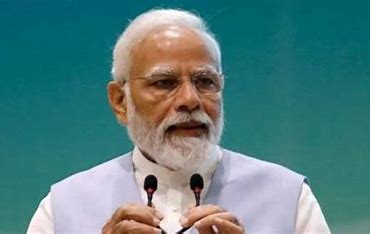
The Joe Biden Administration has come in support of India’s new farm laws that have triggered protests from farmers, but added that unfettered access to information including the Internet was one of the “hallmarks of a thriving democracy”.
In a statement, the US embassy in New Delhi said: “In general, the United States welcomes steps that would improve the efficiency of India’s markets and attract greater private sector investment.”
The Indian government, in its response on Thursday, said that it has “taken note” of the comments made by US State Department on farmers’ protests in the country. It also added that the protest should be “seen in the context of India’s democratic ethos and polity”.
Earlier, the US had called for a “dialogue” with the farmers of India, urging the Indian government to recognise “peaceful protests” and allow “access” to the Internet. On the issue of reports of Internet shutdown in areas around the protest sites at the Delhi border, the Joe Biden administration emphasised that access to information was the “hallmark” of a thriving “democracy”.
Speaking at the weekly virtual press briefing, Anurag Srivastava, Ministry of External Affairs (MEA) spokesperson, said the decision to restrict the Internet access in the regions surrounding Delhi was taken to prevent any more violence. “Any protest must be seen in the context of India’s democratic ethos and polity and the ongoing efforts of the government and concerned farmer groups to resolve the impasse,” he said.
Replying to a question on India’s stance on the US over the farmers’ protest, Srivastava said, “We have taken note of the comments of the US State Department. It is important to take such comments in the context in which they are made and in their entirety.”
While reiterating that India and the US are both vibrant democracies with shared values, he said that the incidents of violence and vandalism at Red Fort on 26 January “evoked similar sentiments and reactions in India as did the Capitol Hill incident on 6 January”.
The incidents are being addressed as per the local laws, he said.
Speaking on the Internet access that was restricted in certain areas on Delhi and its surrounding regions on 26 January, the MEA spokesperson said, “The temporary measures with regards to internet access in certain parts of the Delhi-NCR region were therefore understandably undertaken to prevent further violence.”
With regard to agricultural reforms, the MEA spokesperson further said that the US has acknowledged India’s steps. The US has come out in support of India’s new farm laws, saying it welcomes steps that would “improve the efficiency” of Indian markets and attract greater private sector investment.
India also asked for US help in investigating the Sikhs for Justice—a Khalistani outfit—and their secessionist campaign Referendum 2020. The request has been sent to the US Department of Justice, the foreign ministry said in the backdrop of investigation into alleged Khalistan links in the farmers’ protests. The Delhi Police has registered a case, citing an “overseas” conspiracy behind the violence during the Republic Day tractor rally.
The MEA, in its statement, had earlier said that the government has passed the laws “after a full debate and discussion” and has “initiated a series of talks” to address the farmers’ issues.
The MEA also condemned celebrities, who have drawn attention to the farmers’ protest on social media. Its response came after American pop star Rihanna extended support to the farmers’ protest. “Why aren’t we talking about this?” Rihanna tweeted on Tuesday, along with the hashtag ‘#FarmersProtest’.
Soon after Rihanna’s tweet, several other prominent international celebrities and activists including Jay Sean, Amanda Cerny, Lilly Singh, and Greta Thunberg came out in support of the farmers.
Farmers have been protesting at different borders of the national capital since 26 November last year against the three newly enacted farm laws: Farmers’ Produce Trade and Commerce (Promotion and Facilitation) Act, 2020; the Farmers Empowerment and Protection) Agreement on Price Assurance and farm Services Act 2020 and the Essential Commodities (Amendment) Act, 2020.















